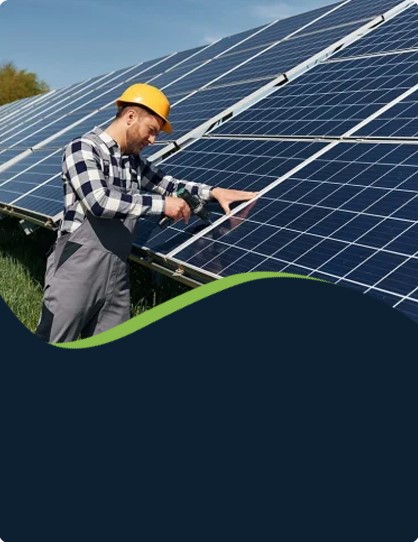
-
[email protected]

-
Building 1, No. 21 Shengfa Road, Lucheng District, Wenzhou, Zhejiang, China


Solar energy is rapidly emerging as one of the most reliable and sustainable sources of power. Among the various solar technologies available, Photovoltaic (PV) Generation Systems, Portable PV Systems, and PV Generation Systems offer diverse solutions for capturing solar energy.

A Photovoltaic (PV) Generation System is a setup designed to convert sunlight into electrical energy using photovoltaic cells. These systems typically consist of solar panels, an inverter, and various other components like charge controllers and batteries, depending on whether the system is grid-tied or off-grid. PV generation systems are widely used in residential, commercial, and industrial applications for generating electricity directly from sunlight.
The main advantage of PV generation systems is their ability to produce clean, renewable electricity with small environmental impact. Solar panels used in these systems harness sunlight, which is a plentiful and free resource, and convert it into usable electricity. In grid-tied systems, the excess electricity generated can be fed back into the electrical grid, allowing homeowners or businesses to earn credits or reduce their energy bills. Off-grid systems, on the other hand, store the generated electricity in batteries for use during non-sunny periods.
One of the challenges of PV generation systems is their reliance on sunlight. While this is not typically an issue in sunny regions, systems in areas with frequent cloud cover or lower solar insolation may not produce enough energy to meet the needs of the user without the addition of energy storage. Additionally, the initial investment cost for PV systems can be significant, although they often result in long-term savings on energy bills.
A Portable PV System is a compact, mobile version of a standard photovoltaic generation system. These systems are designed for use in off-grid environments, where access to the electrical grid may not be available, or in situations where mobility and flexibility are important. Portable PV systems often consist of smaller, lightweight solar panels, charge controllers, and portable batteries, making them ideal for outdoor activities, emergency backup power, or temporary installations.
The primary advantage of portable PV systems is their convenience and flexibility. They are easy to transport and set up, making them good for camping, outdoor events, or as emergency power sources. Additionally, they can be used in remote areas where the electrical grid is not accessible, offering an energy solution in places where traditional power sources would be difficult or impossible to implement.
This includes both residential and commercial systems, as well as large-scale solar farms. The key components of a PV generation system include solar panels that capture sunlight and convert it into electricity, inverters that convert the DC electricity produced by the panels into AC electricity, and energy storage systems (if applicable) to store excess energy for later use.
The solar panels are installed on the roof of a house, and the electricity generated is either used to power the household or sent to the electrical grid. Larger commercial and industrial PV systems often involve larger arrays of solar panels and may be connected to the grid to provide electricity to a broader area.
The primary benefit of PV generation systems is their ability to reduce reliance on conventional energy sources, particularly fossil fuels. PV generation systems are also highly scalable, meaning that they can be customized to meet the specific energy needs of the user, whether that be for a single home or a large business.
Photovoltaic generation systems, portable PV systems, and PV generation systems all offer unique advantages for capturing and using solar energy. PV generation systems are the standard solution for large-scale energy generation, both residential and commercial, while portable PV systems provide flexible, mobile power solutions for outdoor activities and off-grid applications.
Your email address will not be published. Required field are marked*
